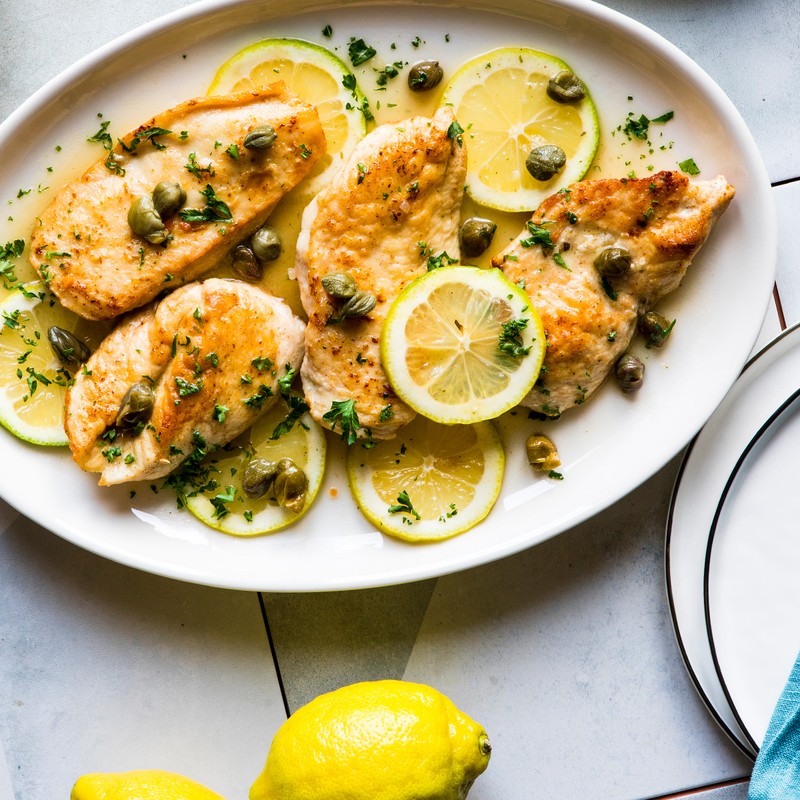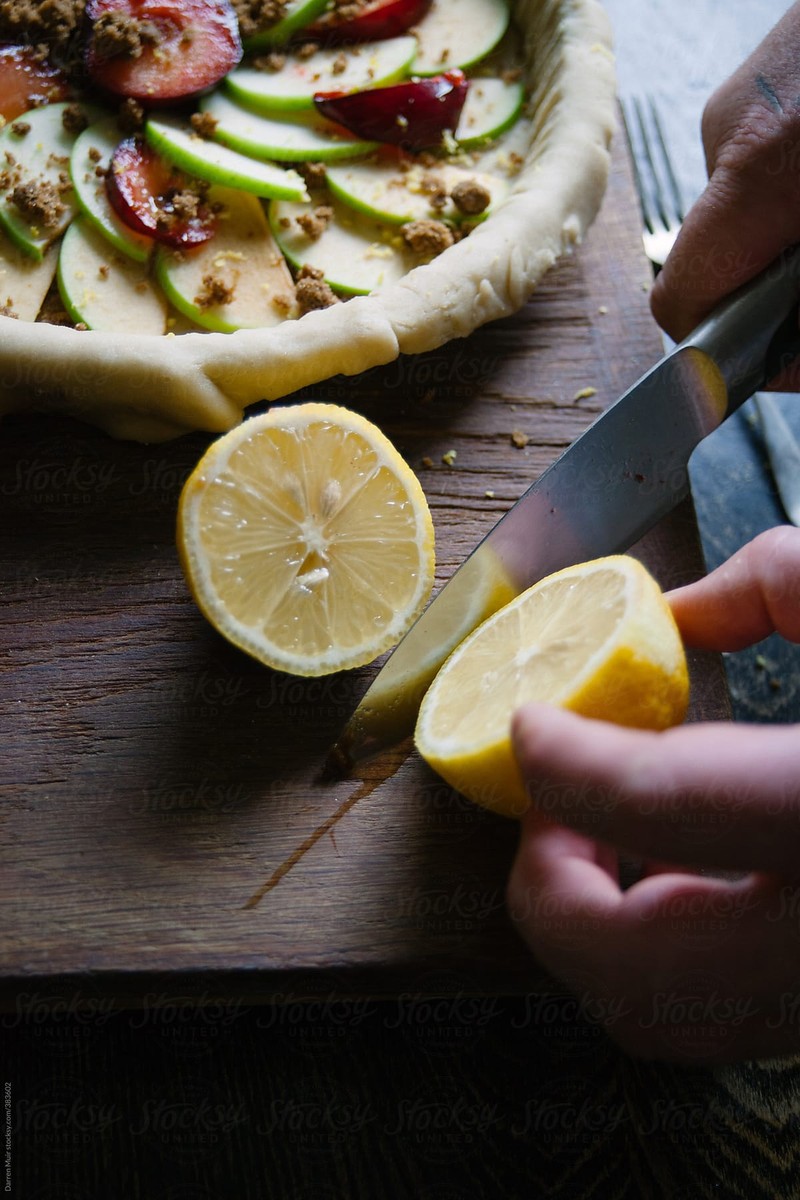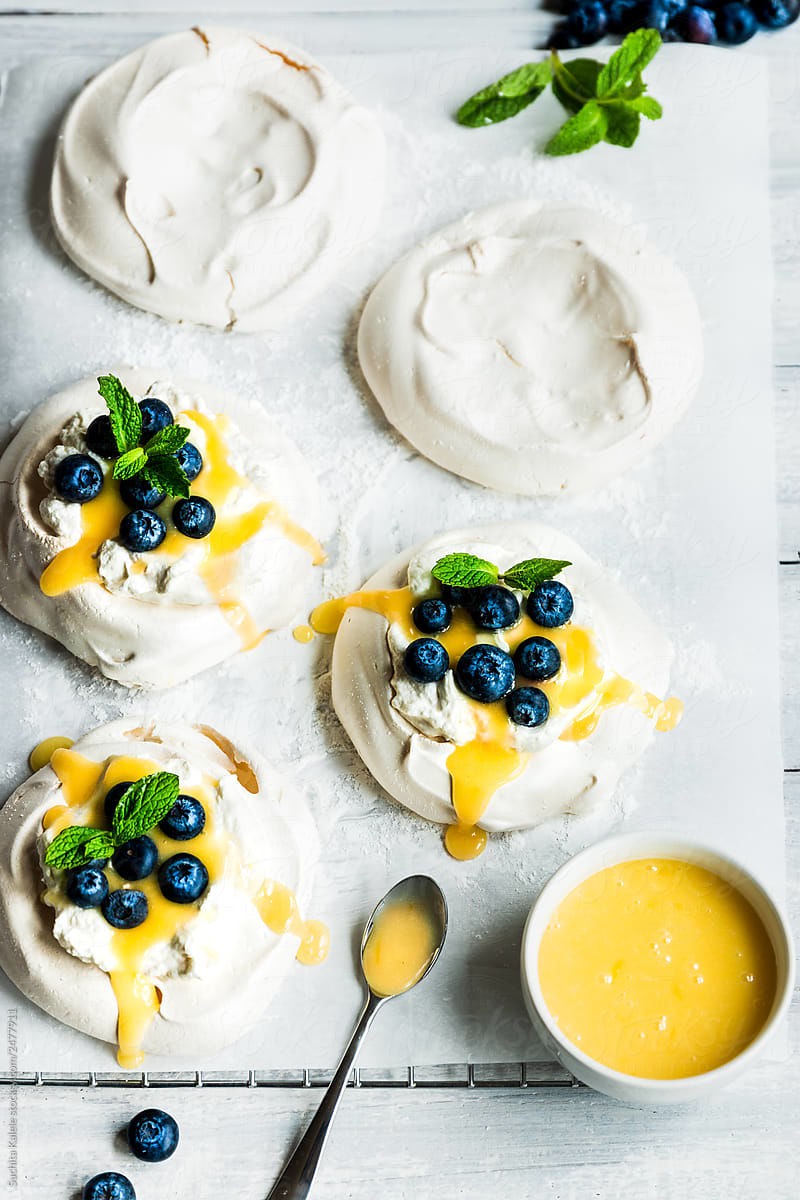
Fresh Ways To Cook With Lemon
Emilia Strazzanti, Strazzanti
“When using the zest of a lemon, make sure to buy organic and wash them well and dry them well, otherwise you will get this chemical-like, tannin taste running through your dish. When seasoning a salad with a lemon dressing, always make the dressing in a large bowl and create an amalgamation with the oil being used, then add the salad leaves into the dressing, never the dressing into the salad leaves. When baking savoury dishes with lemon pieces – whether it’s a roast chicken with rosemary or a whole baked fish – let the lemon release its juices naturally while cooking: never squeeze the juice out before or after cooking as it will make your final dish or sauce very tart and sour.”
Visit Strazzanti.co
Ben Tish, Norma London
“Lemons are so incredibly versatile. Make sure to buy them unwaxed as a minimum and try to find the big, knobbly and delicious Sicilian or Amalfi ones. The skin and juice give different results and have different qualities. The juice is immediately sharp and acidic while the zest is rounded, perfumed and sweeter. Use the zest finely grated into pork, lamb or beef mince for meatballs, gremolata or in a martini. The juice is excellent as an additional seasoning to meat or fish or vegetables, and always add a little into sauces at the end to balance them out. Whisk with extra virgin olive oil for a simple salad dressing; add the juice to sugar and butter for lemon curd; or into a custard for a set cream or tart.”
Visit NormaLondon.com


Wil Hopson, Zested
“The zest is the best bit. Try sizzling lemon zest with a few chilli flakes in some good olive oil before gently frying some cavolo nero, tenderstem broccoli or asparagus – you’ll get the beautiful vibrant flavours without the sourness of the juice. The skin and pulp can be easily frozen to make a good preserve. Simply cut the lemon into large pieces and half a tablespoon of salt per lemon and squash until the juice submerges it. Top with a little extra lemon juice if necessary and leave somewhere dark for a week or until the skin goes translucent. Before eating, rinse off the salt, scoop away the pulp, finely chop the rind and use it to season all manner of dishes. To make dried lemon slices, cut your lemon into thick slices and lay them on some baking parchment and leave them in the lowest possible oven for four to five hours, or until they’re satisfyingly crisp. Store in an airtight container and use on cakes and in drinks. Finally, to make a long-lasting lemon dressing, simply squeeze out the juice and keep it in a tight jar in the fridge. Without the contact with the air and other fridge-loving funky microbes, it’ll last a lot longer. Mix with good olive oil, salt and sugar for a simple dressing that sings with fish, chicken or a crunchy spring salad. It lasts for ages but stays super vibrant.”
Visit Zested.com
Claire Hutchings, The Cookaway
“Lemon is an essential ingredient, like salt and pepper, and something that should always be kept stocked up for home cooking. It's like the Swiss army knife of cooking ingredients as it can be used to help balance and season a dish (replacing or cutting down on the amount of salt or vinegar needed), enhance and elevate flavours and even help to marinade, cure and tenderise fish and meat, as the acid in the lemon causes the meat proteins and connective tissues to break down. Lemon juice is powerful stuff so if you’re using it with uncooked foods, such as a salad dressing or in a marinade you won’t want to leave it on too long as the acid will eventually start to chemically ‘cook’ the food – this is how ceviche is prepared. Using at the end of cooking or as a garnish is a great way to cut through fat or oil, which is why a wedge of lemon is often served with battered fish. The key to using lemon well is to taste – if the food tastes bright and clean the seasoning is well balanced and spot-on! It’s not just the juice of a lemon that makes a versatile addition to cooking, lemon zest is brilliant for adding a strong citrus flavour to food and the abundance of perfume and aromatic oils in the rind makes it perfect to use in baking, where you might not want to use lemon juice, which can curdle and split a batter.”
Visit TheCookaway.com
Ligia Lugo, Vie De La Vegan
“Lemons and other citrus can be extremely useful in the kitchen in a variety of ways. You can use lemon juice as a substitute for vinegar in salad dressings, as a marinade to tenderise meat and even added to cooking water for fluffier rice. By using lemon juice to enhance the flavour of the food you can cut down on the use of salt and a great thing about cooking with lemon is that you can make use of all the parts of the lemon (besides the seeds). If a recipe calls for lemon juice you can almost certainly use the zest as well. Don't hesitate to double down on the lemon flavour in your lemon cake or cream with the juice and zest. Believe it or not, you can add lemon to most recipes, sweet or savoury. If you taste a meal and can't make out what exactly is missing, it probably needs some form of acid, so it’s almost never a bad idea to add a dash of lemon juice to pasta, soups or roasts to bring some contrast and freshness. However, you should be careful when working with dairy – a squeeze of fresh lemon juice can lighten things up, but add too much and the dairy will curdle: adding an acidic element to milk is basically how cheese is made.”
Visit VieDeLaVegan.com
Nitisha Patel
“In order to balance the flavours in dips and salsas such as baba ganoush or guacamole, soak some chopped onions and grated garlic in a little lemon juice before adding them to the rest of the ingredients. Not only does the lemon juice add a great little citrus note, but it also softens some of the harshness and pungency. Want to reduce your salt intake without compromising flavour? As a source of acid, both the juice and zest of lemon provide a tasty alternative to salt. The juice and zest work in the same way as salt would and draws out the key flavours of the dish. The juice gives an acidic kick, while the zest provides a savoury, earthy note. Meal prep is a great way to organise your weekly meals, however, it can also be a challenge to keep your fruit and veg fresh for as long as possible. A squeeze of lemon juice can help prevent fruit and veg such as avocados, apples, bananas and potatoes from turning brown.”
Visit NitishaPatel.com
DISCLAIMER: We endeavour to always credit the correct original source of every image we use. If you think a credit may be incorrect, please contact us at info@sheerluxe.com.

